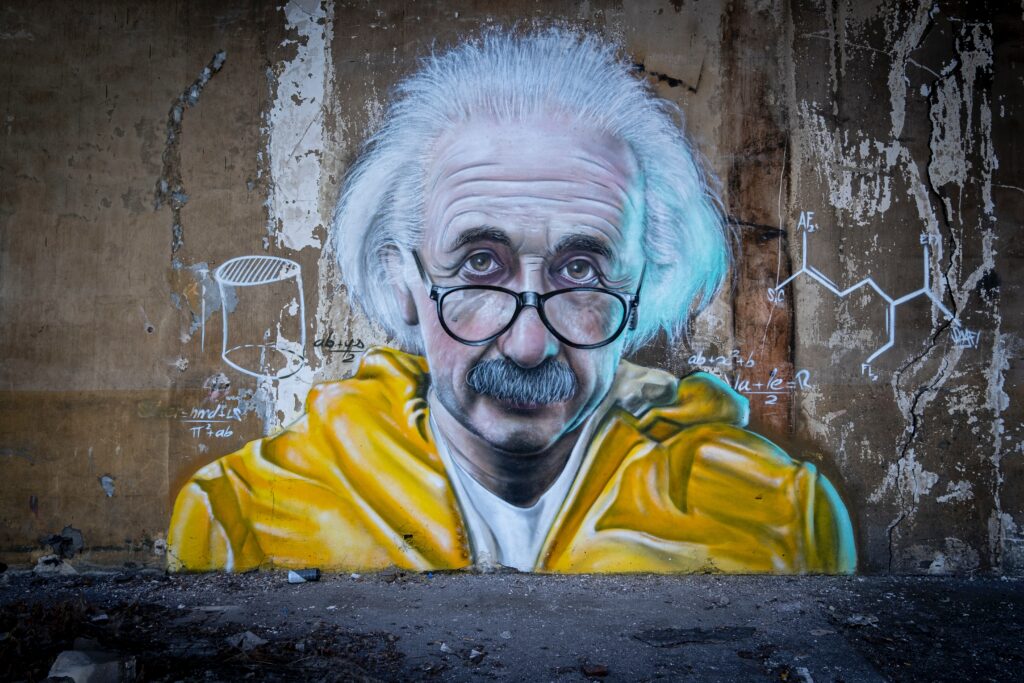Introduction
Albert Einstein was greatest scientist of all the time.People know him or his enormous dedication towards physics and in scientific works.He was also famous for his philosopher nature .Despite of being lost in stars many years before,he is still motivating tiny tots in the field of science. Let us know ‘Did Albert Einstein Go To College?’.

Did Elbert Einstein Go To College?
Yes, Albert Einstein attended college. He earned a diploma in mathematics and physics, but he did not receive a traditional academic degree, as he did not complete a thesis. Despite this, his work and contributions to the field of physics led to him being recognized as one of the greatest scientists of all time.
Einstein College journey:
Albert Einstein college journey began in 1896 when he enrolled in the Swiss Federal Polytechnic School (ETH Zurich) to study mathematics and physics. At the time, he was only 18 years old. During his time at the Polytechnic School, Einstein found the courses to be quite difficult, and he often skipped classes to study on his own
In 1900, Einstein graduated from the Polytechnic School with a diploma in mathematics and physics, but he did not receive a traditional academic degree as he did not complete a thesis. He then worked for a short time as a tutor and a teacher before moving to Bern, Switzerland, where he worked as a patent clerk.
Factors which affected Einstein College life:
There were several factors that affected Albert Einstein’s college life, including:
Family background: Einstein’s family was Jewish and had migrated to Germany from Switzerland. His father, who ran an electrochemical factory, was interested in science and introduced Einstein to various scientific concepts and equipment from a young age.
College environment: The Swiss Federal Polytechnic School, where Einstein studied, was a prestigious institution that provided a challenging academic environment. The school was known for its rigorous curriculum and emphasis on research.
Personal interests and beliefs: Einstein was deeply interested in physics and philosophy, and he held strong beliefs about the nature of the universe. He was also a pacifist and opposed war, which would later influence his political activism.
Health issues: Einstein had some health issues during his college years, including stomach problems and nervous breakdowns. These health problems may have affected his academic performance at times.
Overall, Einstein’s family background, early education, college environment, personal interests and beliefs, and health issues all played a role in shaping his college experience and influencing his future career in physics.
Important events during college of Einstein:
Some important events during Albert Einstein’s college years include:
Enrollment in the Swiss Federal Polytechnic School: In 1896, at the age of 17, Einstein enrolled in the Swiss Federal Polytechnic School (now known as the ETH Zurich) to study mathematics and physics. Self-study of physics: During his college years, Einstein spent a lot of time studying physics on his own and reading scientific journals. He was particularly interested in the work of James Clerk Maxwell, whose theories of electromagnetism would later influence Einstein’s own work.
Graduation with a diploma: In 1900, Einstein graduated from the Swiss Federal Polytechnic School with a diploma in mathematics and physics. He did not receive a traditional academic degree, as he did not complete a thesis.
Work as a tutor and teacher: After graduating, Einstein worked briefly as a tutor and a teacher before moving to Bern, Switzerland, where he worked as a patent clerk.
Overall, Einstein’s college years were marked by his enrollment in the Swiss Federal Polytechnic School, his self-study of physics, his graduation with a diploma, and his work as a tutor and teacher. However, it was his groundbreaking work in physics and publication of papers in 1905 that would ultimately define his legacy.
Major legacy of Einstein:
Albert Einstein’s major legacy is his outstanding contributions in the field of physics. He fundamentally changed our understanding of space, time, and the universe with his theories of special relativity and general relativity, and he revolutionized the field of quantum mechanics with his work on the photoelectric effect. Einstein’s famous equation, E=mc², showed that mass and energy are two sides of the same coin, and his theories have been confirmed through numerous experiments and observations over the years.
Einstein’s legacy has had a lasting impact on science, philosophy, and culture. He remains one of the most influential scientists of all time, and his work continues to inspire new generations of scientists and thinkers.
Conclusion:
Albert Einstein lived a remarkable life that was defined by his groundbreaking contributions to the field of physics and his advocacy for pacifism, civil rights, and social justice. Born in Germany in 1879, Einstein showed an early aptitude for mathematics and physics and went on to study at the Swiss Federal Polytechnic School.
Einstein’s legacy has had a lasting impact on science, philosophy, and culture. He remains one of the most controversial scientists of all time, and his work continues to inspire new generations of scientists and philosopher .Albert Einstein died on April 18, 1955, at the age of 76, but his contributions to the world of science and his urge for peace and justice continue to be celebrated and would appreciated.